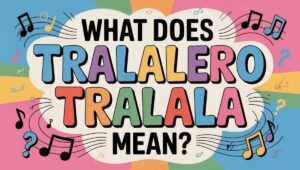Have you ever found yourself puzzled over whether to use pre or post in a sentence? Don’t worry you’re not alone. These tiny prefixes carry huge weight in shaping the sequence of events, particularly when we want to describe things happening before or after a specific time. Whether you’re writing a report, organizing an event, or just trying to communicate more clearly, understanding the pre vs post dynamic can make all the difference.
Let’s dive into the pre and post meaning, how they’re used in English grammar, and why they’re so essential in everyday communication.
What Are Prefixes?
Before we go into the pre vs post debate, let’s start at the root literally. A prefix is a word part added to the beginning of a base word to change its meaning. In this case, pre and post are Latin prefixes. They’re especially common in English language development, having survived centuries of linguistic evolution.
- Pre- comes from the Latin prae, meaning before.
- Post- originates from the Latin post, meaning after.
Together, they serve as linguistic time indicators, helping structure how we think and talk about past and future events.
Pre and Post Meaning: The Basics
Understanding pre and post meaning starts with how they relate to time.
- Pre marks what happens beforehand. Think of it as setting the stage planning, preparing, or initiating something.
- Post marks what comes after the outcome, reflection, or results of an action or event.
In simple terms:
Pre sets up what’s coming, post reflects on what happened.
Let’s see this in action with a few quick examples:
| Prefix | Example Word | Meaning |
|---|---|---|
| Pre- | Pre-event | Before the event |
| Post- | Post-event | After the event |
| Pre- | Pre-test | A test taken before the lesson |
| Post- | Post-test | A test taken after the lesson |
| Pre- | Pre-cooked meals | Meals cooked beforehand |
| Post- | Post-production | Editing after filming |
Common Uses in Daily Life
You’d be surprised how often pre and post show up in your day-to-day conversations. Here are just a few pre and post examples that demonstrate how these prefixes are baked into modern English:
- In Education: Pre-school (before formal schooling) vs Post-graduate (after earning a degree)
- In Medicine: Pre-operative instructions vs Post-operative care
- In Business: Pre-launch strategy vs Post-launch analysis
- In Health: Pre-workout supplements vs Post-workout recovery
These prefixes help us organize time, understand sequences, and communicate more clearly.
Post vs Pre: What’s the Difference?
When people ask about post vs pre difference, they’re often trying to make sure they’re using the right prefix for the situation. Let’s break it down:
| Scenario | Use ‘Pre’ When… | Use ‘Post’ When… |
|---|---|---|
| You’re talking about planning | …you mean before something happens (pre-planning) | …you mean after something has happened (post-analysis) |
| Referring to events | …you’re setting up or previewing the event (pre-game show) | …you’re evaluating or summarizing (post-game interview) |
| Talking about timelines | …you’re leading up to a moment (pre-deadline work) | …you’re reflecting on it (post-deadline review) |
Think of it like this:
“Pre is about the cause. Post is about the effect.”
Pre vs Post in Grammar: Time Relationships
In English grammar, pre vs post prefixes work like time markers. They signal to the reader when something happens in relation to a central event. This is critical for both spoken and written communication, especially in professional or academic contexts.
Let’s consider this sentence:
“Jennifer reviewed the post-event report and compared it with the pre-event checklist.”
Here, pre-event and post-event clearly signal the time relationships between different actions. Without those prefixes, the sentence would be far more confusing.
Prefix Usage in English: Tips for Clarity
Using pre and post prefixes correctly comes down to understanding context. Here are some guidelines to follow:
✅ 1. Know Your Timeline
Are you describing something that occurs before or after a central event? Use pre for before, and post for after.
✅ 2. Consider the Noun
Certain nouns naturally pair with either prefix based on convention. For example:
- Pre-test (standard term)
- Postpartum (used in medical contexts)
It would sound awkward to reverse them without clear reasoning.
✅ 3. Don’t Overuse Them
While these prefixes are powerful, cramming your sentences with pre and post words can make your writing sound forced or robotic. Use them thoughtfully.
Language Evolution: Historical Origins of Prefixes
Both pre and post trace their roots back to Latin, and they were carried into English largely through Old French and scholarly usage. Over time, they’ve adapted to modern needs—appearing in everything from academic language to casual speech.
In fact, the popularity of prefix transformation (adding pre or post to new terms) continues today. For instance, tech companies might say “pre-launch phase” or “post-beta testing,” even if those terms weren’t around a decade ago. That’s how flexible these prefixes are!
Fun with Pre and Post: Real-World Analogies

Let’s spice things up with a little analogy.
Imagine you’re hosting a dinner party.
- The pre phase involves choosing the menu, sending invites, and setting the table.
- The event is the actual dinner.
- The post phase includes cleaning up, sharing pictures, and maybe regretting eating too much dessert.
This kind of event sequence is what pre and post help capture in just a word or two.
Why It Matters: Communication Clarity
Whether you’re scheduling a meeting, writing an email, or teaching a class, using pre and post effectively makes your language clearer and more precise. It eliminates guesswork and keeps everyone on the same page.
As one manager, Tina, once emailed her team:
“Please complete the pre-training checklist before Friday. The post-training survey will be shared next week.”
Clear, simple, and perfectly timed thanks to pre and post.
Conclusion
The debate between post vs pre isn’t really a competition. Instead, it’s about knowing which prefix to use to match the timing and context of your message. Both serve essential roles in helping us map out events, clarify information, and connect ideas across time relationships.
Here’s a quick recap:
- Pre = Before (planning, initiating, preparing)
- Post = After (reflecting, concluding, analyzing)
- Together, they help build a more structured, intelligent, and time-sensitive language.
So the next time you’re unsure which prefix to use, just ask yourself:
Is this before or after the event?
Once you know that, you’ll never get it wrong again.
“Pre marks the beginning, post signals the end.”









